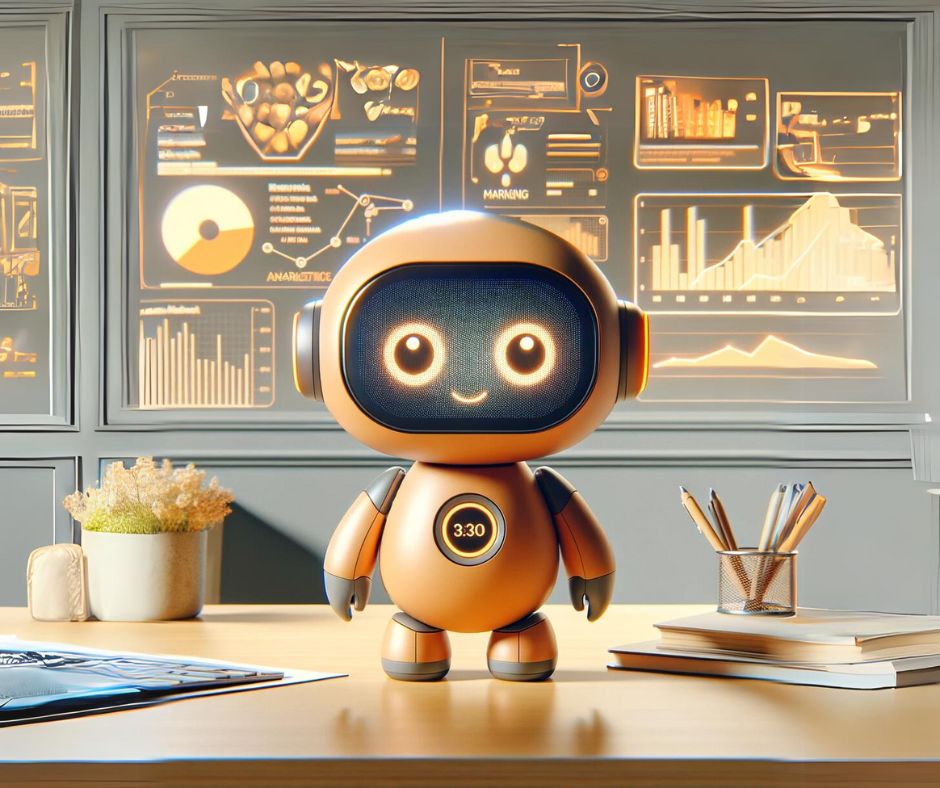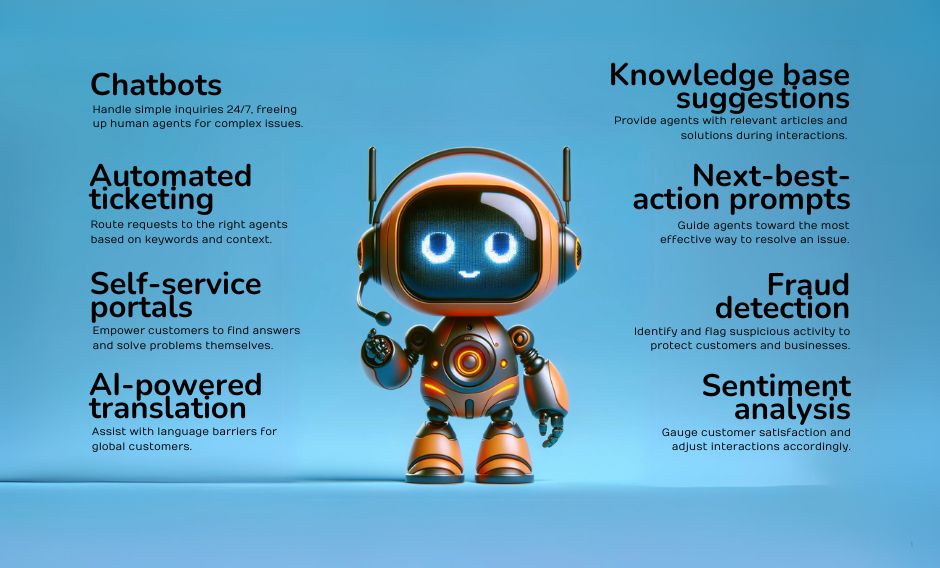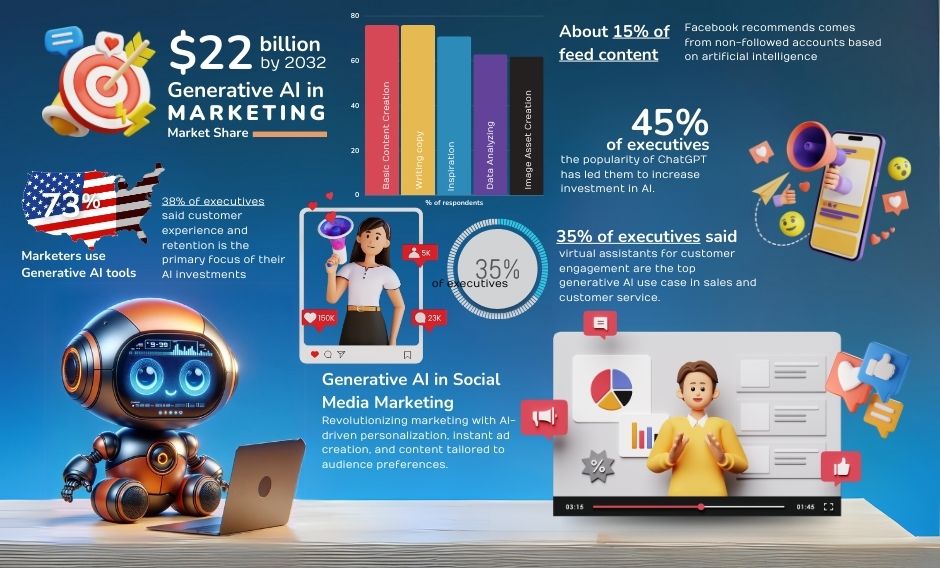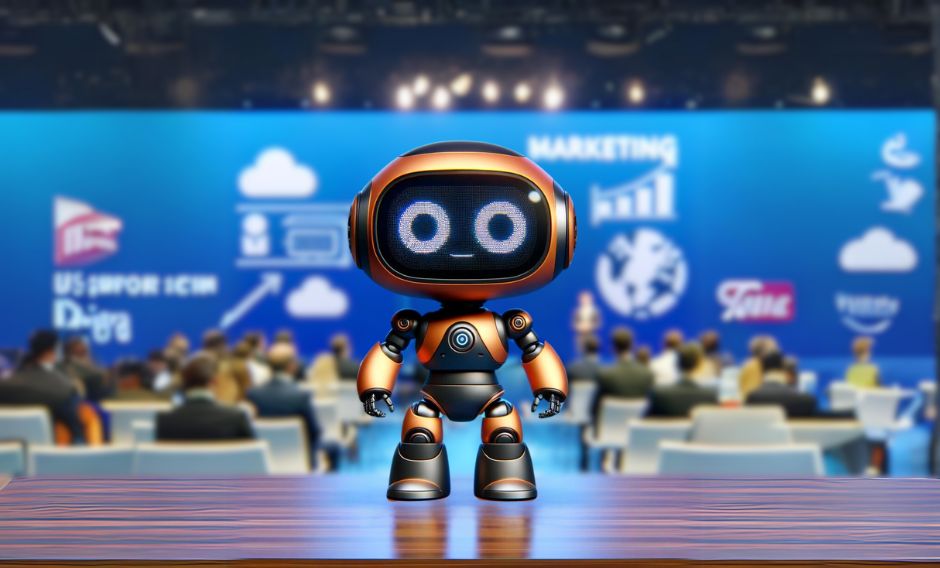Table of Contents
In an era where digital transformation is not just a trend but a business imperative, the integration of artificial intelligence (AI) in marketing strategies stands as a pivotal factor in determining the success and leadership of businesses. As we navigate through a rapidly evolving digital landscape, AI’s role in marketing has shifted from a futuristic concept to a fundamental necessity. This article delves into the transformative impact of AI Marketing Agencies and provides a roadmap for aspiring entrepreneurs looking to position themselves as market leaders.
What is an AI Marketing Agency?
What is an AI Marketing Agency? An AI Marketing Agency represents the cutting-edge convergence of technology and marketing expertise. It leverages AI algorithms and tools to:
- Analyzing big data for insights
- Predicting customer behavior
- Personalizing content and messaging
- Automating repetitive tasks
- Optimizing ad targeting and bidding
- Conducting A/B testing at scale
- Providing real-time performance monitoring and reporting
- AI-powered chatbots can provide 24/7 customer support
- Voice search optimization assistance
- AI-powered tools can help in monitoring social media conversations.
- AI-assisted copy and content writing
- AI-assisted graphic designing
- Scheduling and automating social media posts.
Unlike traditional marketing agencies, an AI Marketing Agency brings a data-driven and automated approach to marketing, ensuring more efficient and effective outcomes. AI has the potential to revolutionize digital marketing by automating mundane tasks, providing real-time insights, and improving customer experiences. As AI continues to evolve and become more sophisticated, it will enable marketers to deliver even better services to their clients.
The Evolution of Digital Marketing to AI-Enhanced Strategies.
The journey from digital marketing to AI-enhanced strategies marks a significant leap in the marketing domain.
Historically, digital marketing revolutionized the way businesses connect with their audiences through online platforms. Now, AI has taken this revolution a step further by adding intelligence and precision to these digital efforts.
This evolution signifies a shift from a one-size-fits-all approach to a more tailored and intelligent marketing strategy, capable of adapting in real-time to the dynamic market environment.

The Beginner's Guide to AI in Marketing
Where to Start? For beginners venturing into AI in marketing, the starting point revolves around understanding AI fundamentals and identifying the right AI tools that align with their business objectives. The initial step is to familiarize oneself with basic AI concepts and how they apply to marketing. This includes learning about machine learning, natural language processing, predictive analytics, and more. Then, identifying AI tools and platforms that can help in areas like customer segmentation, content optimization, and campaign analytics is crucial.
Understanding the Basics of AI and its Application in Marketing AI in marketing is not just about using sophisticated tools; it’s about understanding how these tools can enhance your marketing strategies. At its core, AI helps in analyzing large sets of data to derive meaningful insights, automating repetitive tasks, and personalizing marketing messages. Applications range from chatbots for customer service to AI-driven content creation and SEO optimization.
Identifying the Unique Value of AI in Marketing
AI enhances marketing strategies by bringing in a level of precision and personalization that was previously unattainable. For instance, AI algorithms can analyze customer data to identify patterns and preferences, enabling marketers to create highly targeted and personalized campaigns. AI also plays a crucial role in predictive analytics, helping businesses anticipate market trends and customer needs.
AI’s Role in Data Analysis and Customer Insights. The power of AI in marketing lies in its ability to transform raw data into actionable insights. AI tools can sift through vast amounts of data to identify trends, predict customer behavior, and provide insights that inform marketing decisions. This data-driven approach ensures that marketing efforts are not based on assumptions but on concrete evidence derived from customer data.
A Tool for Market Leadership
AI marketing agencies are instrumental in positioning businesses as market leaders. By leveraging AI’s analytical and predictive capabilities, businesses can stay ahead of market trends and customer preferences. AI-driven strategies enable businesses to deliver innovative and personalized customer experiences, setting them apart in a competitive marketplace. This strategic edge is crucial for businesses aiming to establish themselves as thought leaders and innovators in their industry.
Case Studies: Successful Businesses Using AI Marketing Strategies.
Most of the top market leaders already leverage AI for their marketing efforts. Numerous businesses have achieved significant success by integrating AI into their marketing strategies. For example,
1. Netflix: Netflix uses AI to deliver a more personalized customer experience. The company’s AI-powered recommendation system analyzes a user’s viewing history, search history, and ratings, as well as information about the content itself, such as its genre and director. Using this data, the system can generate personalized recommendations that are tailored to each user. According to Netflix, its recommendation system is responsible for 80% of the content that users watch on the platform.
2. Sephora: Sephora, the cosmetics retailer, has implemented a chatbot on its website and mobile app that uses machine learning algorithms to personalize the customer experience and provide support and recommendations to shoppers.
3. Chase+Persado: Chase, a New York-based consumer bank, upgraded its copywriting by collaborating with Persado, one of the top AI marketing companies that use AI in its creative processes.
4. Starbucks: Starbucks is one of the other companies using AI for marketing.
5. Alibaba: Alibaba is known to use many AI tools for marketing, it has now opened its first AI fashion store in Hong Kong.
These companies have successfully integrated AI into their marketing strategies, leading to more effective inventory management, targeted marketing campaigns, and enhanced customer satisfaction and loyalty.
Overcoming the Challenges: Starting with AI Marketing
Venturing into AI marketing comes with its set of challenges and fears, primarily concerning risk, potential failure, and opportunity costs. To overcome these, businesses must adopt a calculated approach, starting small and scaling gradually. It’s crucial to set realistic goals and measure the outcomes against them. Educating oneself about AI and seeking advice from experts can also mitigate these fears, allowing businesses to make informed decisions.
Practical Steps to Initiate AI Marketing for Your Business
Initiating AI marketing requires a strategic approach.
- Define Marketing Objectives: This involves setting clear and measurable goals that align with your business strategy. For example, a company might set an objective to increase website traffic by 20% over the next quarter.
- Conduct Research: This involves identifying the right AI tools and platforms that align with your business needs. For instance, a company might use AI tools like Exploding Topics for discovering trends or Gong for transcribing customer interviews.
- Start Small: This means beginning with a pilot project to test the effectiveness of AI. For example, a small business might start by using AI for content generation or audience segmentation.
- Measure and Refine: This involves setting realistic goals and measuring the outcomes against them. For example, a company might use AI to analyze website traffic and identify keywords that can help improve search engine rankings.
- Educate and Seek Advice: This involves continuously learning about AI and seeking advice from experts. For instance, marketers can use resources like HubSpot’s blog to learn about AI marketing and get practical advice.
The integration of AI into marketing is a journey, not a destination. It requires continuous learning, experimentation, and adaptation. But with the right approach, it can lead to significant improvements in marketing effectiveness and business performance.
Costs and Benefits: Analyzing the Investment in AI Marketing
Investing in AI marketing involves understanding its cost implications and how it fits into your overall budget. Costs can vary based on the tools and services chosen. It’s essential to consider both the initial investment in technology and the ongoing expenses for maintenance and updates. However, when planned and executed well, the long-term benefits and ROI can significantly outweigh the initial costs.
The ROI of investing in an AI Marketing Agency can be seen in various areas:
- Improved Marketing Efficiency: AI can analyze and utilize data effectively, leading to more targeted and successful marketing campaigns.
- Higher Conversion Rates: With AI’s ability to personalize marketing efforts based on consumer behavior and preferences, businesses can achieve higher conversion rates.
- Better Customer Retention: AI can help businesses understand their customers better, predict customer behavior, and provide personalized experiences, thereby improving customer retention.
- Reduced Labor Costs and Time: AI-driven automation can handle repetitive tasks, reducing labor costs and time.
However, it’s important to note that the ROI from AI projects can vary greatly based on how much experience an organization has. Leaders showed an average of a 4.3% ROI for their projects, compared to only 0.2% for beginning companies. Therefore, it’s essential for businesses to start small, gain experience, and gradually scale their AI initiatives.
AI Marketing Agency vs. Traditional Digital Marketing Agency
The primary difference between an AI Marketing Agency and a traditional digital marketing agency lies in the use of AI technology. AI agencies offer a more data-driven, personalized, and predictive approach to marketing. They provide services like AI-driven content creation, predictive analytics, and automated customer engagement, which traditional agencies may not offer.
Please note that the choice between an AI Marketing Agency and a Traditional Digital Marketing Agency depends on your specific needs and goals. Both types of agencies have their own strengths and weaknesses, and the best choice may vary depending on the situation..
AI marketing is increasingly becoming the future of marketing due to its ability to process large volumes of data, provide personalized customer experiences, and predict future trends. As the digital landscape becomes more complex and competitive, AI’s role in marketing becomes more critical. It enables businesses to be agile, data-driven, and customer-centric, which are key traits for success in the modern market.

Key Services of an AI Marketing Agency
AI Marketing Agencies offer a range of services that harness the power of artificial intelligence to enhance various aspects of marketing. These services include but are not limited to:
- Predictive Analytics: Using AI algorithms, these agencies can analyze historical data to predict future trends and consumer behavior.
- Personalized Marketing: AI can help create personalized content, offers, and recommendations based on individual consumer data.
- Chatbots and Virtual Assistants: AI-powered chatbots can provide instant customer service, lead generation, and engagement.
- Programmatic Advertising: AI can automate the buying and selling of online advertising, optimizing for the best ROI.
- Content Generation: AI can generate simple content like social media posts, product descriptions, and more.
- Customer Segmentation: AI can analyze customer data to create detailed and effective customer segments.
- Email Marketing: AI can optimize email marketing campaigns, including personalization, timing, and subject lines.
- Social Media Monitoring: AI can monitor social media for brand mentions, sentiment analysis, and more.
- Sentiment Analysis: AI can analyze customer feedback and social media comments to determine customer sentiment towards a brand or product.
- SEO and Content Optimization: AI can analyze and optimize website content for SEO, improving visibility on search engines.
- Voice Search Optimization: With the rise of voice assistants, AI can help optimize your content for voice search.
- Customer Journey Mapping: AI can track a customer’s journey across multiple touchpoints to provide insights into customer behavior and preferences.
- Data Visualization: AI can present complex data in a visually understandable format, making it easier to derive insights.
- A/B Testing: AI can automate A/B testing, allowing marketers to quickly determine the most effective strategy.
These re some research on how these services can transform your marketing efforts
- AI in Customer Predictive Analytics: AI is instrumental in identifying target customers more precisely by analyzing their behaviors. This approach enhances the effectiveness of marketing strategies through various phases of the customer lifecycle (Zulaikha et al., 2020).
- AI’s Transformation of Marketing Strategies and Customer Behaviors: AI is poised to significantly alter both marketing strategies and customer behaviors. It will be more effective when used to augment, rather than replace, human managers (Davenport et al., 2020).
- The Role of Customer Knowledge and AI: AI-based data analysis is crucial for understanding user experience and behavior in product and service sectors. However, it’s also important to consider the limitations, such as privacy concerns and potential biases (Zada, 2022).
- AI Voice Bots in Service Marketing: AI has changed consumer decision-making, particularly for low involvement decisions. Service management needs to adapt to this change, emphasizing search ranking or warehouse stock over traditional brand values (Klaus & Zaichkowsky, 2020).
- Digital Analytics with AI: Firms are using AI and other new-age technologies for customer management strategies like personalization and engagement. AI helps generate actionable consumer insights (Gupta et al., 2020).
- AI’s Impact on Consumer Buying Behavior: AI significantly improves marketers’ capacity to analyze and comprehend consumer behavior, which positively impacts marketing strategies and customer journey understanding (Biswas & Patra, 2023).
Expanded Deeper Dive into Specific Benefits of AI Marketing: Potential Applications
| AI Marketing Applications | Benefits |
|---|---|
| Personalized Shopping Experiences in E-commerce | Tailored product recommendations, customized email marketing, dynamic website content, increased customer engagement and sales |
| Predictive Analytics in Retail | Optimized inventory management, targeted promotions, efficient supply chain adjustments, reduced overhead costs, increased sales |
| Enhanced Customer Service with AI Chatbots | Efficient handling of customer queries, instant responses, reduced workload on human customer service representatives |
| AI in Content Marketing and SEO | Content idea generation, SEO optimization, improved online presence, higher search engine rankings, increased organic traffic |
| Social Media Monitoring and Engagement | Improved social media strategies, enhanced audience engagement, increased brand awareness |
| Email Marketing Optimization | Personalized email campaigns, higher open and click-through rates, automated email timing and frequency |
| Targeted Advertising with Improved ROI | More targeted ads, improved conversion rates, better return on investment for advertising spend |
| AI-Driven Market Research and Consumer Insights | In-depth market research, valuable consumer insights for product development, market entry, and marketing strategy adjustment |
AI and Customer Personalization
One of the most significant advantages of AI in marketing is its ability to create highly personalized marketing campaigns. AI analyzes customer data, including browsing habits, purchase history, and preferences, to tailor marketing messages that resonate with each individual. This level of personalization enhances customer engagement and drives better conversion rates.
Personalization, powered by AI, plays a crucial role in boosting customer engagement and loyalty. Customers are more likely to engage with content that is relevant to their interests and needs. By providing personalized experiences, businesses can build stronger relationships with their customers, leading to increased loyalty and repeat business.
AI-Driven Content Creation and SEO
AI is revolutionizing content creation and SEO by enabling more efficient and effective strategies. AI tools can generate content ideas, optimize keywords, and even create content that is both user-friendly and search engine optimized. This not only saves time but also ensures that the content is more likely to rank higher in search engine results.
AI contributes significantly to boosting a business’s online visibility. By optimizing content for SEO, AI helps businesses rank higher in search results, making them more visible to potential customers. Additionally, AI can analyze search trends and adjust strategies in real-time, ensuring that the content remains relevant and effective.
Content Idea Generation: Stuck in a creative rut? AI can be your brainstorming buddy! Tools like ShortlyAI and Jasper can analyze your target audience, niche, and existing content to suggest fresh, relevant ideas for blog posts, articles, and even social media captions. Imagine the possibilities!
Keyword Optimization: Forget endless keyword research spreadsheets. AI tools like Surfer SEO and Ahrefs can analyze your content and suggest the most relevant and high-performing keywords to target. Think of it as having a secret SEO formula at your fingertips!
Content Creation Powerhouse: But AI doesn’t stop at ideas and keywords. Tools like Writesonic and Rytr can actually generate drafts, outlines, and even entire blog posts based on your specifications. It’s like having a tireless writing assistant who never complains about deadlines.
User-Friendly & SEO-Friendly? Check and Check: The best part? AI-generated content isn’t just keyword-stuffed gibberish. These tools are trained on vast amounts of high-quality text, ensuring the content is not only informative and engaging but also optimized for search engines. It’s a win-win for both readers and algorithms.
Boosting Online Visibility: By optimizing content for SEO, AI helps businesses climb the search engine ladder, making them more visible to potential customers. Imagine your website basking in the top search results, like a king on a digital throne!
Trend Tracking & Strategy Tweaking: AI doesn’t just set it and forget it. It constantly analyzes search trends and user behavior, allowing businesses to adjust their content strategies in real-time. Think of it as having a crystal ball for what the SEO future holds!

Leveraging AI for Social Media Marketing
AI is transforming social media marketing by providing tools for more effective engagement and advertising. AI algorithms can analyze social media trends, track user engagement, and optimize advertising campaigns for better performance. This enables businesses to reach their target audience more effectively and engage with them in a more meaningful way.
AI tools are adept at analyzing social media trends, helping businesses stay ahead of the curve. By understanding current trends, businesses can create content that is more likely to resonate with their audience. AI can also predict future trends, allowing businesses to prepare and adapt their strategies accordingly.
Trend Tracking Detective: Forget crystal balls – AI algorithms are the ultimate social media trend trackers. They scan vast amounts of data, identifying what’s hot, what’s not, and everything in between. This empowers businesses to craft content that rides the wave of relevance, resonating with their audience like a perfectly timed tweet.
Engagement Amplifier: Forget crickets under your posts! AI helps analyze user engagement, pinpointing what sparks conversation and what leaves audiences snoozing. With this insight, businesses can tailor their approach, crafting interactive content that fosters genuine connections and turns social media into a lively hive of buzz.
Ad Targeting Jedi: No more throwing ad darts in the dark! AI optimizes advertising campaigns like a lightsaber-wielding Jedi Master. By analyzing user demographics, interests, and online behavior, AI finds the perfect audience for your brand, ensuring your message reaches the right eyes, wallets, and hearts.
Meaningful Connection Architect: It’s not just about reach, it’s about relationships. AI helps businesses personalize their social media interactions, understanding individual preferences and crafting responses that feel like genuine conversations, not robotic broadcasts. This builds trust, loyalty, and a sense of community around your brand.
Email Marketing Revolutionized by AI
AI has significantly enhanced email marketing by enabling hyper-personalization. By analyzing customer data, AI can help tailor email content to individual preferences and behaviors. This leads to more engaging and effective email campaigns, with higher open and click-through rates.
AI-driven email marketing is not just about sending out messages; it’s about building and nurturing customer relationships. By providing relevant and personalized content, AI helps in creating a more meaningful connection with the audience. This approach not only improves customer engagement but also fosters long-term loyalty.
Hyper-Personalization Powerhouse: Forget one-size-fits-all blasts. AI dives deep into customer data, dissecting purchase history, website clicks, and even email engagement patterns. Armed with this intel, it tailors email content to individual preferences, recommending products, suggesting similar items, and crafting messages that speak directly to each recipient’s interests. Imagine, emails that feel like handwritten notes from a best friend, not robotic marketing bots.
Engagement & Click-Through Rate Skyrocket: This laser-focused personalization ignites engagement. Open rates soar, click-through rates jump, and unsubscribe buttons gather dust as customers actually find value in the messages they receive. It’s like turning email marketing into a treasure hunt, with every click revealing a personalized delight.
Customer Relationship Architect: But AI doesn’t stop at immediate conversions. It helps build lasting relationships by nurturing leads with relevant content, offering timely support, and celebrating milestones like birthdays or anniversaries. Think of it as having a loyal AI assistant personally managing each customer interaction, fostering trust and loyalty with every email.

AI in Analytics and Decision Making
When it comes to marketing, data is king. AI excels in analyzing vast amounts of data to derive insights that drive strategic decisions. By leveraging AI for analytics, businesses can make more informed decisions about their marketing strategies, ensuring that their efforts are aligned with customer needs and market trends.
Predictive analytics is a powerful tool in AI marketing, enabling businesses to anticipate customer needs and behaviors. By analyzing historical data, AI can predict future trends, helping businesses to be proactive rather than reactive. This foresight is invaluable in creating marketing strategies that are not only effective but also forward-thinking.
Holistic Timeline of Notable Breakthroughs in Generative AI (1948 - Present)
Please note that this timeline is not exhaustive and only includes some of the most significant milestones in the development of generative AI. The field is rapidly evolving, with new advancements being made regularly. Here’s a holistic timeline of notable breakthroughs in Generative AI, including advancements in image, video, voice, Natural Language Processing (NLP), Large Language Models (LLM), and Large Attribute Models (LAM):
Early Foundations (1948 – 1990s):
- 1948: Claude Shannon’s “A Mathematical Theory of Communications” introduces the idea of n-grams, laying the groundwork for statistical language models.
- 1950: Alan Turing’s “Computing Machinery and Intelligence” proposes the Turing Test as a measure of machine intelligence.
Rise of Generative Models (Late 1990s – Early 2000s):
- Development of Generative Adversarial Networks (GANs) revolutionizes image and audio generation, creating realistic visuals and mimicking voices.
2014 – 2020:
- 2014: Ian Goodfellow introduces GANs, enabling generative AI to compete and improve image realism.
- 2015: Google’s DeepMind develops WaveNet, generating realistic speech from raw audio waveforms.
- 2016: AlphaGo, a DeepMind program powered by generative AI, defeats the world champion in Go.
- 2018: OpenAI introduces GPT-2, a large-scale language model capable of generating coherent paragraphs.
- 2020: OpenAI unveils GPT-3, a massive LLM showcasing creativity and generating various text formats.
2021 – Present: The AI Revolution Takes Off:
- January 2021: NVIDIA releases Megatron-Turing NLG, a 530B parameter LLM for diverse creative text formats.
- April 2021: OpenAI unveils DALL-E 2, a powerful text-to-image model generating hyperrealistic and artistic visuals.
- May 2021: Google AI introduces Imagen, another impressive text-to-image model with unparalleled detail control.
- June 2021: Stability AI releases Stable Diffusion, an open-source text-to-image model driving widespread adoption.
- July 2021: Midjourney, an artist-focused platform, gains traction for its unique style and community-driven approach.
- August 2021: RunwayML expands its Generative AI platform with RunwayML Text-to-Video, enabling video generation from text descriptions.
- November 2021: OpenAI releases ChatGPT, a conversational AI model sparking enthusiasm for its engaging dialogue capabilities.
- December 2021: ElevenLabs launches Melodies, a text-to-music AI generating original musical pieces based on user input.
Continued Advancements and Diversification (2022 – Present):
- January 2022: Google AI unveils PaLM 2, a massive 540B parameter LLM showcasing improved reasoning and factual grounding.
- February 2022: Pikashow releases AI Art, a mobile app bringing accessible text-to-image generation to everyone.
- March 2022: Baidu AI unveils WuDao 2.0, a 175B parameter LLM focusing on scientific text and knowledge integration.
- April 2022: LaMDA 3 from Google AI is announced, emphasizing responsible development and alignment with human values.
- June 2022: Google AI introduces Pathways, a modular and flexible AI infrastructure for building diverse and specialized AI models.
- July 2022: RunwayML releases RunwayML Scene Editor, allowing users to manipulate and edit pre-existing images and videos with AI.
- August 2022: OpenAI launches Muse, a platform for exploring and generating creative text formats through collaborative AI.
2023 and Beyond:
- January 2023: DreamStudio by Stability AI launches, offering cloud-based access to Stable Diffusion and other open-source models.
- February 2023: ElevenLabs unveils Voix, a text-to-speech AI generating realistic and expressive voices from text descriptions.
- March 2023: Google AI releases LaMDA 3 for research, providing controlled access to its advanced conversational capabilities.
- April 2023: RunwayML debuts RunwayML Remix, a tool for remixing and interpolating existing images with AI assistance.
- May 2023: OpenAI releases Jukebox, a text-to-music model capable of generating different musical styles and genres.
- June 2023: Jasper, a leading AI writing assistant, introduces Jasper Art, a text-to-image generation tool within its platform.
- July 2023 and Beyond: Ongoing advancements in text-to-3
- August 2023:
- DALL-E 3 Beta launched by OpenAI, offering even more detailed and photorealistic text-to-image generation.
- NightCafe Creator’s AI gained popularity for its unique artistic styles and user-friendly interface.
- Make-A-Video emerged as a contender in text-to-video generation, creating short clips based on textual descriptions.
- September 2023:
- Stable Diffusion 2.0 released, enhancing image quality and control across various styles.
- Bard, the generative language model you’re interacting with now, entered public beta, showcasing its ability to answer your questions and generate different creative text formats.
- DreamStudio launched integration with Latent Diffusion, expanding its offerings beyond Stable Diffusion.
- October 2023:
- Midjourney introduced “Made in Midjourney” gallery, showcasing stunning community-created artworks.
- RunwayML acquired Voicelab, bolstering its AI voice capabilities and further blurring the lines between text and various mediums.
- Google AI unveiled Pathways Studio, a platform for building custom AI models from pre-trained modules.
- November 2023:
- ElevenLabs announced integration with OpenAI Jukebox, offering users the ability to control generated music styles within Voix.
- Muse by OpenAI released new features, including collaborative writing tasks and improved text generation capabilities.
- Several Open-source text-to-video models emerged, including Disco Diffusion and Anything-V3, democratizing access to video generation.
- December 2023:
- Stability AI announced plans for open-sourcing Stable Diffusion 3.0, further propelling the democratization of text-to-image technology.
- Generative AI conferences and summits like NeurIPS and Generative AI 2023 saw a surge in attendance and exciting new research presentations.
- Discussions on ethical considerations, bias, and the potential societal impact of Generative AI intensified, prompting important conversations regarding responsible development and user education.
Beyond:
As we enter 2024, expect continued advancements in Generative AI across various domains, including text-to-3D, personalized AI assistants, and even AI-powered robotics. The Open-source movement is likely to play a crucial role in fostering innovation and accessibility, while larger players like OpenAI and Google AI continue to push the boundaries of technology. Ethical considerations and responsible development will remain at the forefront of discussions, shaping the future of how we create, interact, and live with Generative AI.

